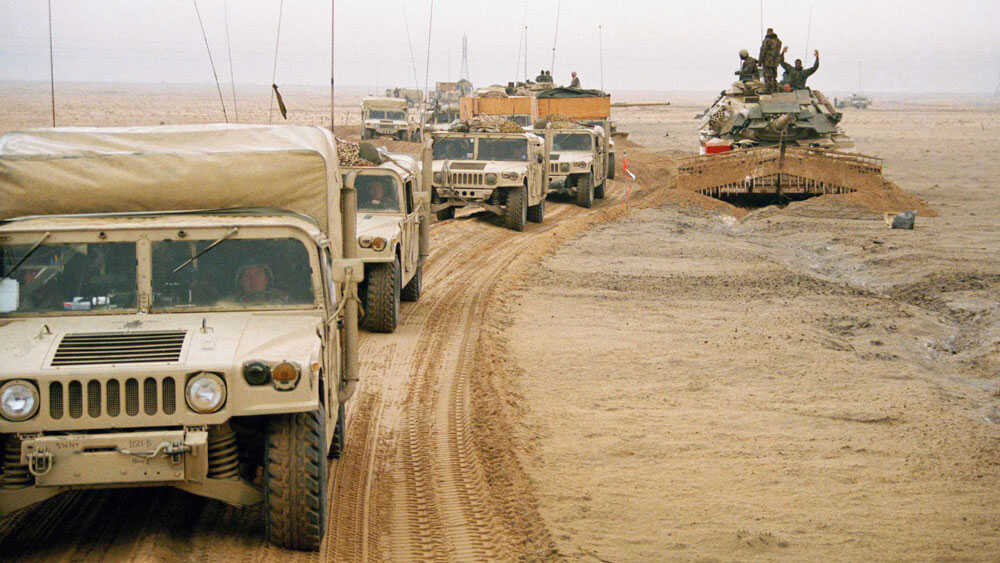Juan Méndez Covarrubias managed to spend less than two years in the United States Army. This young man born in California entered the armed forces in June 2018, in March of the following year he was assigned to the 1st Cavalry Division, and in October he was sent to Iraq. Five months later, on March 11, 2020, he was killed when the Taji camp was shelled by insurgents. Mendez is, to date, the last soldier of Latino origin to fall in the US ranks in Iraq.
Since the war in Iraq began in March 2003, the presence of Latino soldiers has not been limited to joining the US forces. There were also soldiers deployed by allied countries, as well as soldiers who were part of private companies hired to guard diplomatic facilities. In the first scenario, the troops from Nicaragua, El Salvador (5 dead in the war), the Dominican Republic, Honduras and Colombia stand out. In the second, soldiers of different origins to whom all kinds of promises were made.
In that group is Ermes Barboza. A former member of the Colombian Army, he enlisted in the private company Blackwater and traveled to Iraq in 2006. He spent a couple of months in Baghdad protecting the US embassy and then was deployed to different parts of the country. There he had a peak period of weekly shelling of the camps “with 80 and 120 mm mortars,” he tells Deutsche Welle (DW). Between 2010 and 2011 he carried out similar missions in Afghanistan.
Promises and debts
Barboza was among those who protested in July 2021, both in Colombia and in the United States, demanding that the promise made to them in Iraq be fulfilled: to give them nationality. “The ambassador (of the United States in Iraq) told us, in one of the many meetings we had, that after five years of being there, we were going to have the Green Card. We demanded the title of war veterans, which would give us access to nationality, work in the State and a tax house in the United States ”, he explains to DW.
Other soldiers who were sent to Iraq are also claiming benefits. For example, in November 2022, hundreds of soldiers who were in the war representing the Armed Forces of the Dominican Republic – a country that sent 604 troops to the conflict between 2003 and 2004 – protested the payment of travel expenses that they were promised. According to his version, it was $200 a day that the United States paid the Dominican Republic for each soldier, as well as $500 a month. Only in December 2022 did the payment begin, after numerous protests.
To all these cases is added a large number of testimonies from combatants who were seriously injured, whose tragic stories often appear in the press, or soldiers who retire from the armed forces to return to their countries of origin, unaware of the benefits that they can access. There are also examples of people who served in combat and are now fighting to regain the right to live in the United States.
The war to return
Retired sergeant Esteban Blis created “You Served, We Care Foundation” in Panama, an entity that is concerned with advising Latino soldiers so that they can access their pensions or medical benefits. “Many veterans are unaware of their benefits in the United States, not they know there are programs that pay them for their medicines,” Blis, who was deployed twice to Afghanistan, where he was wounded, tells DW. After recuperating in Germany and retiring, he discovered that many of his classmates were destitute. “I once approached Vice President Mike Pence (2017-2021) and told him that the US government has to care about veterans, that it’s their duty,” he reveals.
There are also cases of soldiers deported to their countries of origin. Since they did not become US citizens in time, the fact of committing crimes -often related to the post-traumatic stress that most suffer- opens the door to expulsion from the United States. “The main crimes are drugs, domestic violence and carrying weapons,” says Blis. For this reason, and after much fighting, the activists managed to get a law approved that facilitates access to US citizenship for those who join their forces. armed.
The tragedy of many Latin American veterans is that, after the war, the fight continues. As for Barboza, the Colombian from Blackwater. He is confident that the campaign to receive the promised benefits will come to fruition. “The chances at the moment are 70 percent. It depends on what happens in the United States Congress. Our representative there has already met with (Vice President) Kamala Harris,” he explains to DW. If they succeed, some 200 ex-combatants they could be benefited.





